The music industry is experiencing a technological revolution with artificial intelligence now capable of composing original melodies, harmonies, and complete tracks. This transformation raises profound questions about creativity, authenticity, and the future of music production. As AI-generated music becomes increasingly sophisticated, both artists and listeners find themselves navigating a new landscape where the boundaries between human and machine creativity are increasingly blurred.
The Evolution of AI-Generated Music
The journey of AI in music creation has evolved dramatically over the past decade. Early algorithms could only produce simple melodies following rigid rules, but today’s neural networks can generate complex compositions across multiple genres that are increasingly difficult to distinguish from human-created works.
Key Technologies Driving AI Music Creation
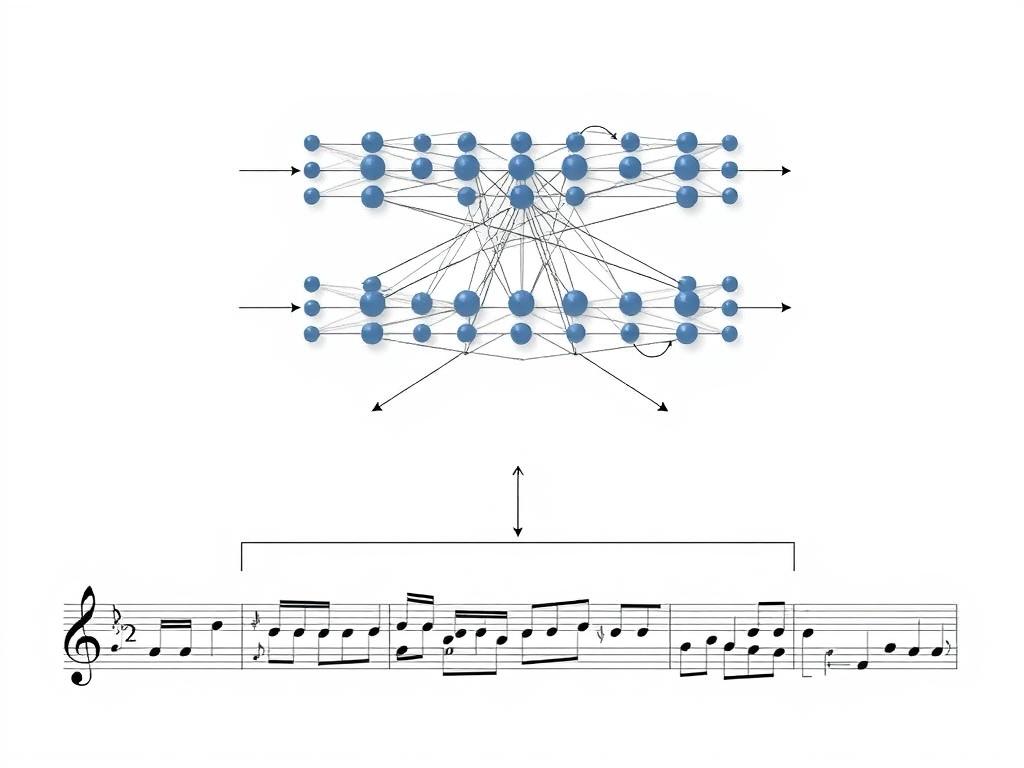
Modern AI music systems employ sophisticated technologies that analyze vast datasets of existing music to understand patterns, structures, and stylistic elements. These systems then use this knowledge to generate original compositions that reflect these learned patterns while introducing novel variations.
Experience AI Music Creation Firsthand
Curious about how these technologies work in practice? Try generating your own AI music with today’s leading platforms.
Redefining Creativity: Artists in the Age of AI
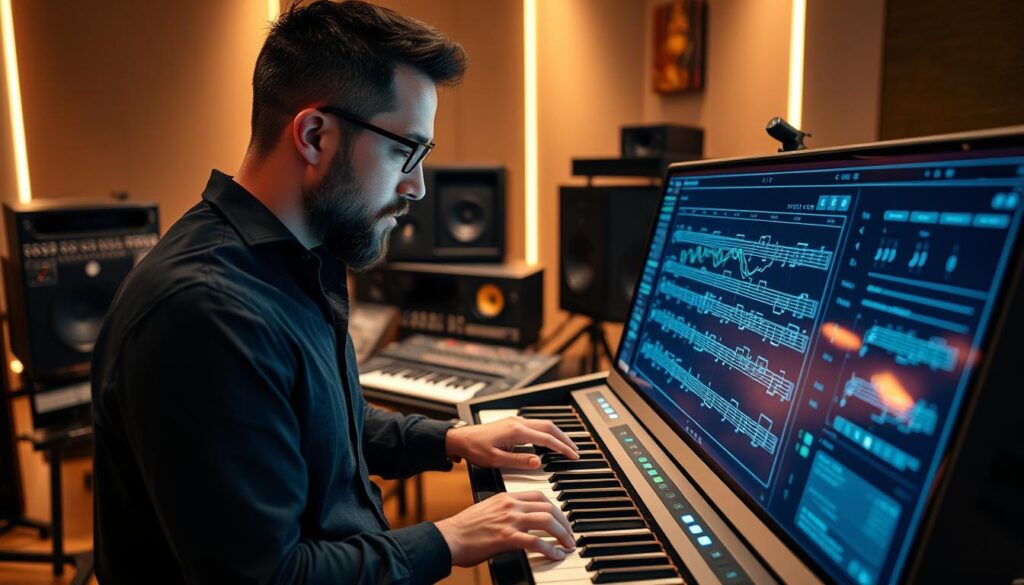
For musicians and composers, AI-generated music represents both opportunity and challenge. The technology is reshaping traditional creative processes and introducing new possibilities for collaboration between human artists and artificial intelligence.
Creative Collaboration
Many artists now use AI as a collaborative tool, generating initial ideas or variations that they then refine and develop. This human-AI partnership can break creative blocks and inspire new directions that might not have emerged otherwise.
Democratization of Production
AI music tools are making sophisticated music production accessible to those without formal training or expensive equipment. This democratization allows more people to express themselves musically and potentially reach audiences.
Copyright Challenges
As AI systems learn from existing music, questions arise about intellectual property. When an AI creates a composition that resembles existing works, determining originality and ownership becomes increasingly complex.
“AI isn’t replacing creativity—it’s expanding it. The most interesting developments happen when artists collaborate with these systems rather than viewing them as replacements.”
The Economic Impact
New Opportunities
- Creation of custom soundtracks at scale
- Personalized music experiences
- New roles in AI music supervision
- Faster production workflows
Potential Challenges
- Displacement of session musicians
- Devaluation of composition skills
- Royalty and attribution issues
- Market saturation with AI content
Transforming the Listening Experience
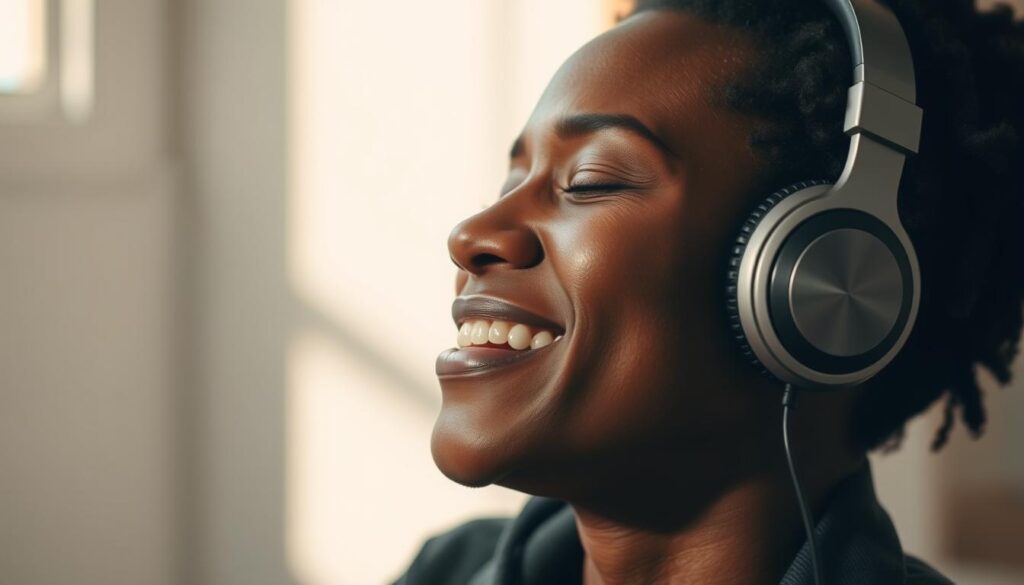
The rise of AI-generated music is fundamentally changing how we discover, consume, and connect with music. For listeners, this technological shift brings both exciting possibilities and important considerations about authenticity and artistic value.
Personalization and Discovery
AI systems can now create music tailored to individual preferences, moods, or even biometric data. Streaming platforms are beginning to offer personalized AI soundtracks that adapt to listeners’ activities, environments, or emotional states. This level of customization represents a significant departure from traditional music consumption.

Ethical Considerations for Listeners
Hear the Future of Music
Experience the latest in AI-generated music and judge for yourself how it compares to human compositions.
AI Music in the Real World
AI-generated music has moved beyond experimental labs and into mainstream applications. Several platforms and projects demonstrate the current capabilities and potential future directions of this technology.
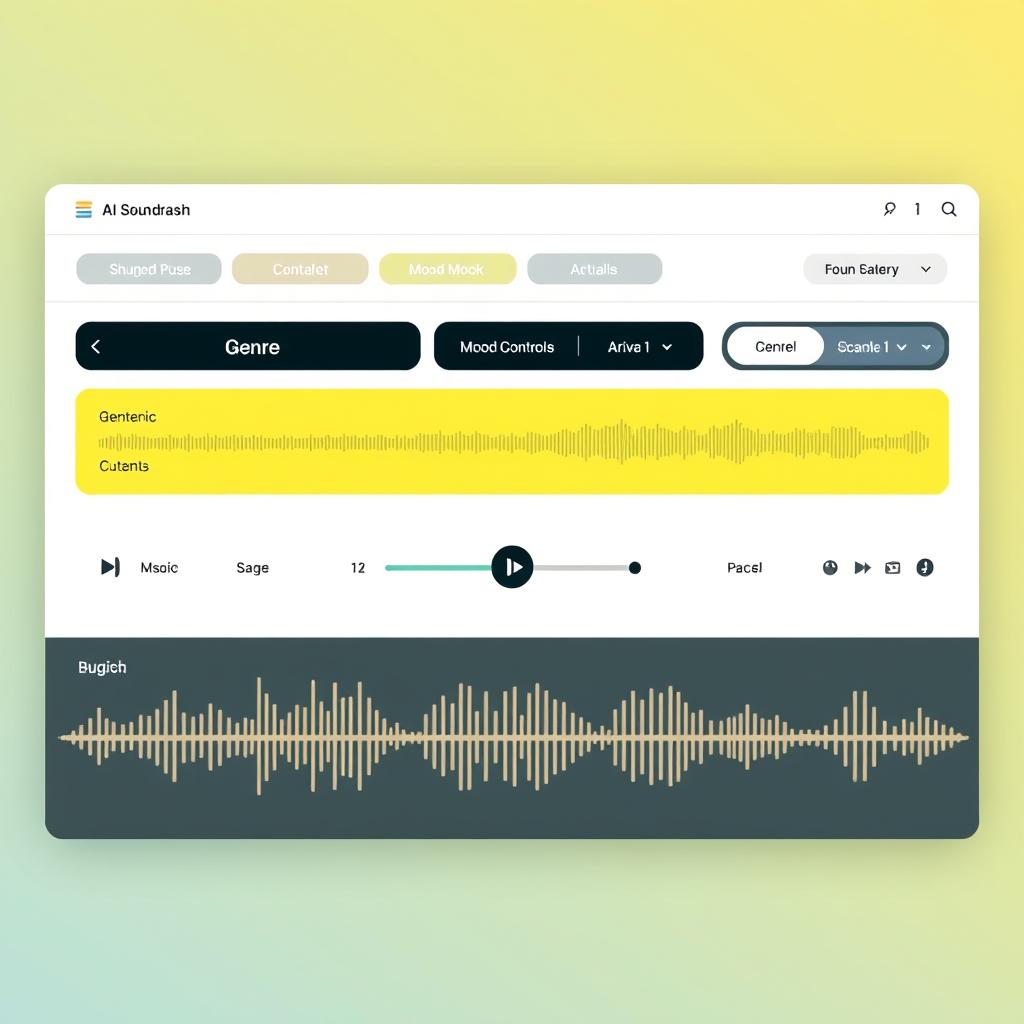
Soundraw
A platform that allows users to generate custom tracks by selecting genre, mood, and length. Used by content creators for royalty-free background music and by artists seeking inspiration.
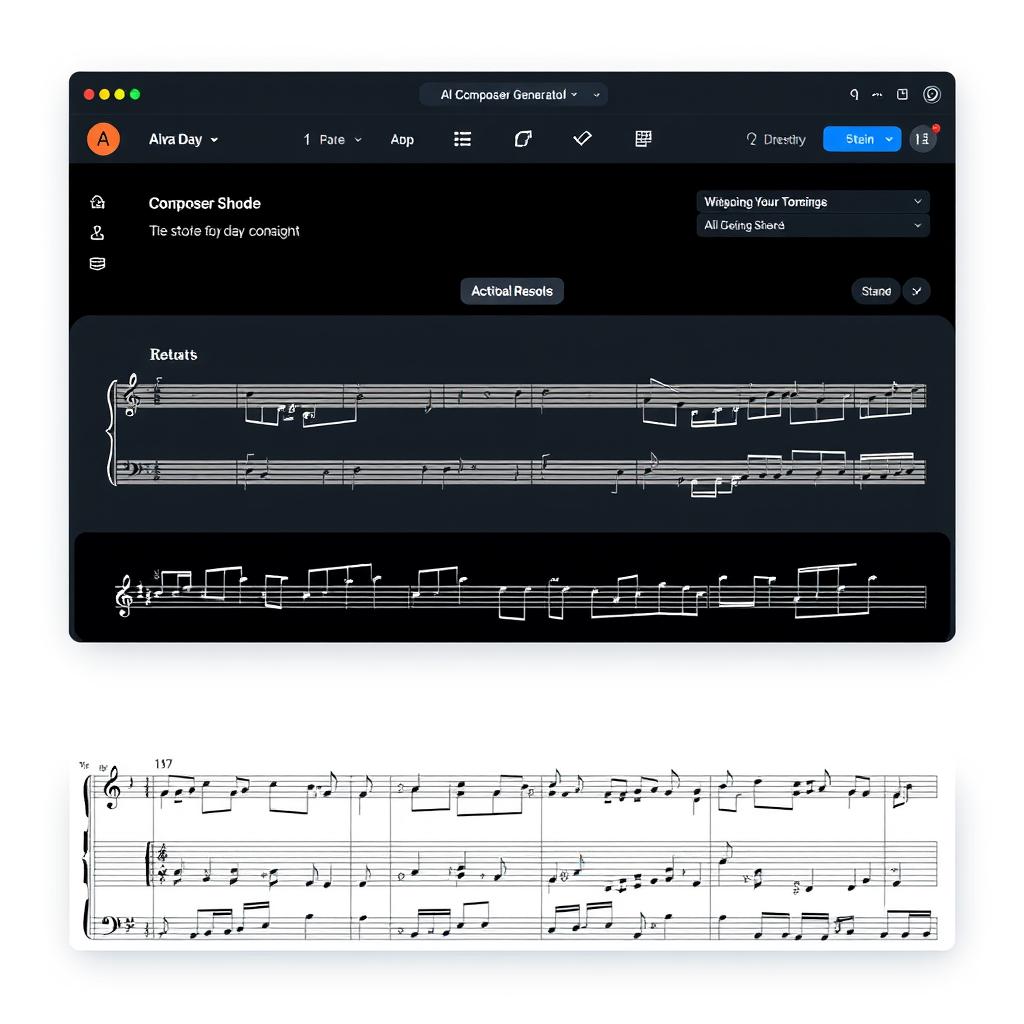
AIVA
An AI composer focused on creating emotional soundtracks for films, games, and commercials. AIVA has composed pieces performed by symphony orchestras and used in professional productions.
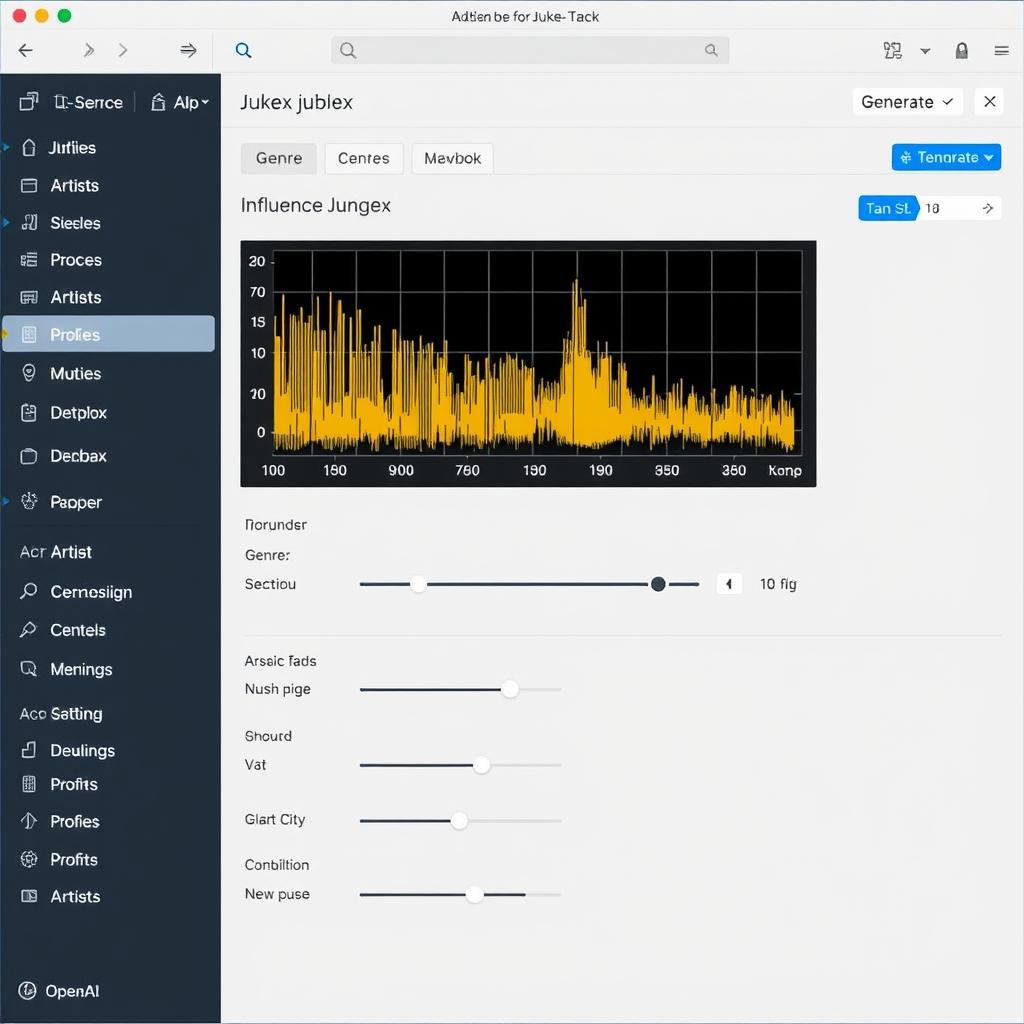
OpenAI’s Jukebox
A research project that generates music in specific styles, complete with vocals. Demonstrates how AI can capture the essence of particular artists and genres.
Commercial Success Stories
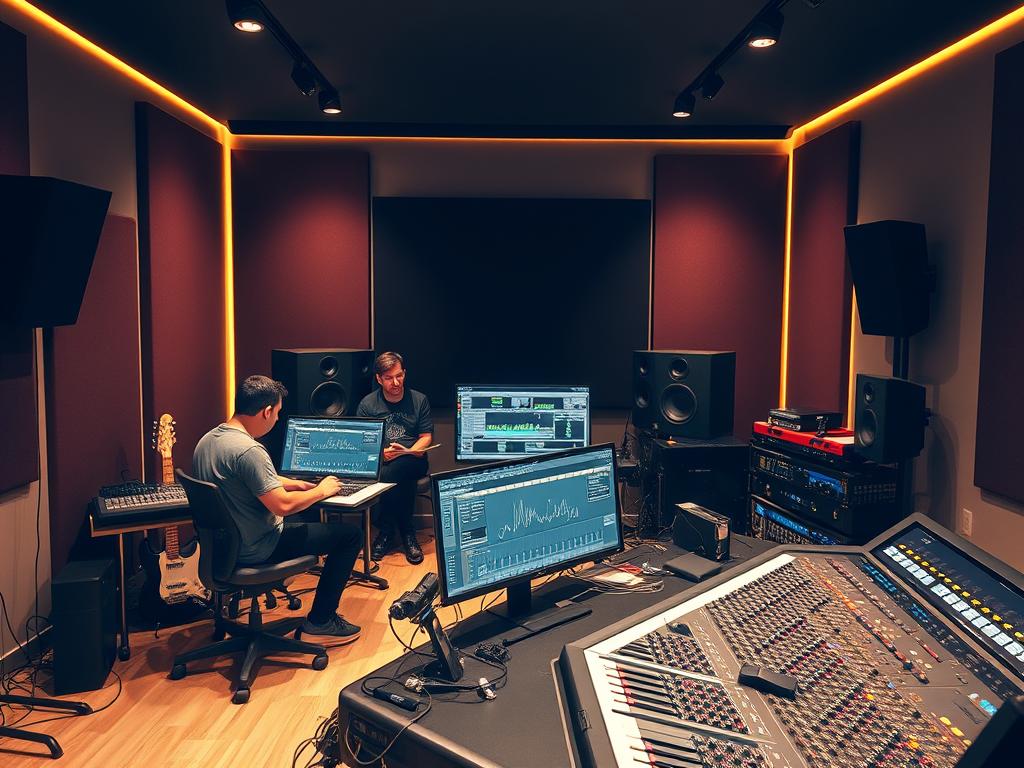
Several tracks featuring AI-generated elements have achieved commercial success. In 2019, the album “Hello World” by SKYGGE (an AI project led by composer Benoît Carré) became one of the first commercially released albums to prominently feature AI-generated music. More recently, artists like Holly Herndon have incorporated AI “vocal collaborators” into their work, training neural networks on their own voice to create an AI counterpart.
Notable AI Music Milestones
- 2016: Sony’s Flow Machines AI helps compose “Daddy’s Car” in the style of The Beatles
- 2018: Taryn Southern releases “I AM AI,” the first album composed and produced with AI
- 2020: OpenAI’s Jukebox demonstrates the ability to generate music with vocals in various styles
- 2021: Holly Herndon’s “Holly+” project allows others to use an AI version of her voice
- 2023: Multiple mainstream artists begin incorporating AI tools into their production workflows
The Future of Human-AI Coexistence in Music
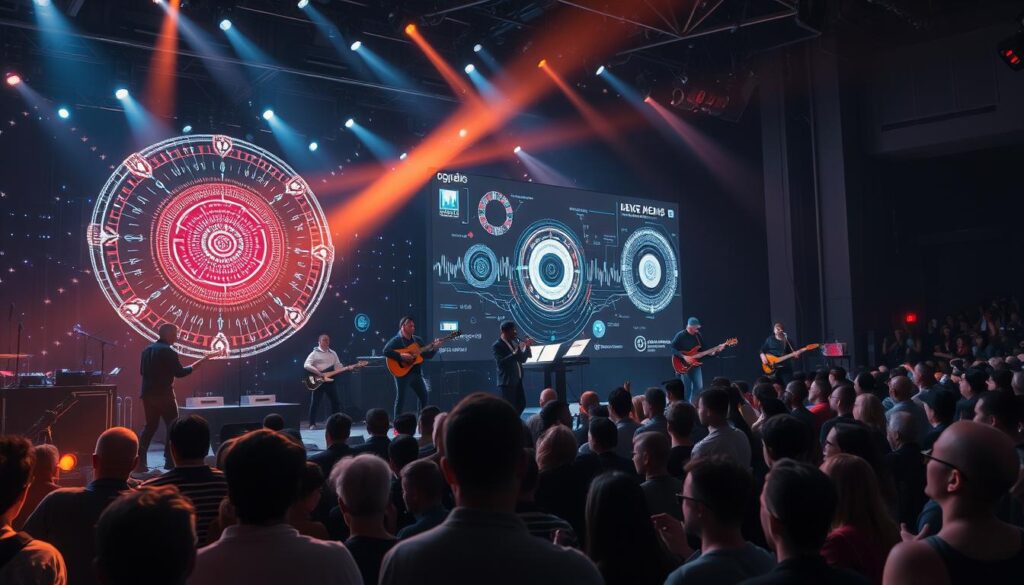
As AI music technology continues to advance, the relationship between human creativity and artificial intelligence will likely evolve in complex and unexpected ways. Rather than a simple replacement narrative, we’re seeing the emergence of a nuanced ecosystem where AI and human creativity complement each other.
Emerging Trends
“The most exciting potential of AI in music isn’t replacing human creativity but augmenting it—helping us explore creative territories we couldn’t access alone.”
Join the AI Music Conversation
Stay informed about the latest developments in AI music technology and join discussions about its impact on the future of creativity.
Frequently Asked Questions
Can AI completely replace human musicians?
While AI can generate impressive compositions, it currently lacks the lived experience, cultural context, and emotional depth that human musicians bring to their work. Rather than replacement, we’re seeing AI function more as a new creative tool that artists can incorporate into their process. The most compelling music often emerges from collaboration between human creativity and AI capabilities.
Who owns the copyright to AI-generated music?
Copyright law for AI-generated content remains complex and evolving. Currently, most jurisdictions require human creativity for copyright protection. For AI music, ownership typically depends on the platform’s terms of service and may belong to the user, the platform, or exist in a gray area. Many commercial AI music platforms offer specific licensing terms that clarify usage rights for their generated content.
How can I tell if a song was created by AI?
As AI technology improves, distinguishing between human and AI-generated music becomes increasingly difficult. While some AI music may still have telltale signs like unusual phrasing or structure, high-quality AI compositions can be virtually indistinguishable from human-created works. Some platforms are developing watermarking or disclosure systems to provide transparency about AI involvement in creation.
Is using AI-generated music ethical for commercial projects?
The ethics depend largely on transparency, proper licensing, and context. Using properly licensed AI music from platforms that compensate the developers is generally considered ethical. However, using AI to mimic specific artists without permission or attribution raises ethical concerns. Best practices include understanding the licensing terms of the AI platform you’re using and being transparent with your audience about AI involvement.
Embracing a New Musical Era
The rise of AI-generated music represents not just a technological shift but a fundamental reimagining of how music is created, distributed, and experienced. As with any transformative technology, its ultimate impact will depend on how we choose to implement and regulate it.
Rather than fearing displacement, many forward-thinking artists are embracing AI as an extension of their creative toolkit. Listeners, meanwhile, are gaining access to an unprecedented diversity of musical experiences. The most promising future appears to be one where human creativity and artificial intelligence complement each other, each contributing their unique strengths to expand the boundaries of musical expression.
As we navigate this evolving landscape, maintaining open dialogue about the ethical, cultural, and economic implications of AI in music will be essential. By approaching these technologies thoughtfully, we can work toward a future where AI enhances rather than diminishes the human elements that make music such a powerful form of expression.







